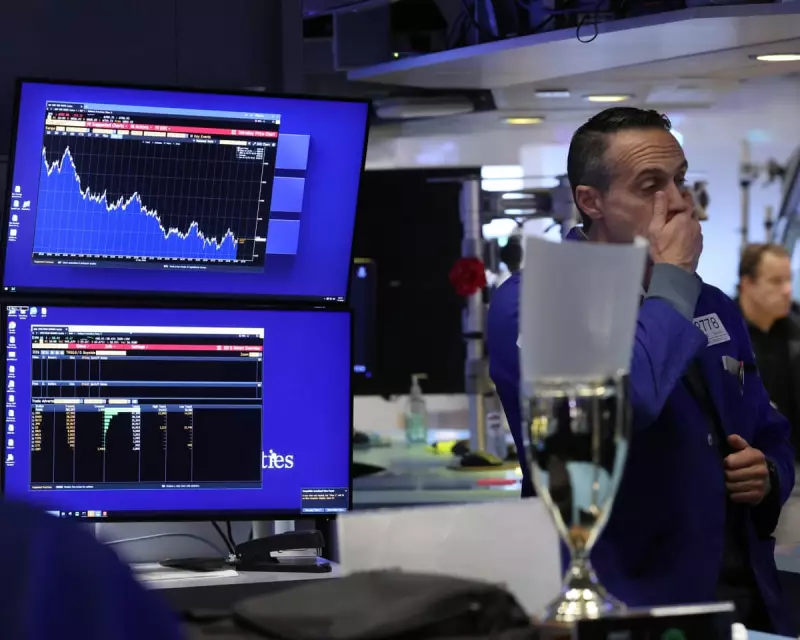
Global Markets Stumble Amid Tech Rout and Economic Jitters
Financial markets across the globe experienced a significant downturn, reacting to a sharp sell-off in the technology sector and alarming economic signals from China. This follows Wall Street's most severe trading day in a month, setting a negative tone for markets worldwide.
Asia Leads the Decline Following Wall Street's Plunge
The fallout was immediately visible in Asia. Japan's tech-heavy Nikkei index dropped by 1.8%, while South Korea's Kospi saw a more severe plunge of 2.6%. Australia's market wasn't spared, recording a 1.5% fall. This sell-off was largely fuelled by a rout on Wall Street, where giants like Nvidia led the decline.
Nvidia, the tech behemoth valued at a staggering $4.5 trillion, fell by 3.6%. This drop occurred as investors began a widespread reassessment of companies within the artificial intelligence sector. The shift in sentiment was triggered in part by Japan's SoftBank, which sold its entire stake in Nvidia. The ripple effect was felt across other major tech firms: SoftBank and the Chinese chipmaker SK Hynix both fell more than 6%, Samsung Electronics dropped 4%, and the Taiwan Semiconductor Manufacturing Company declined by 1.8%.
Chinese Economic Data Fuels Further Anxiety
Compounding the tech-driven worries were fresh fears over the health of the Chinese economy. New data revealed that economic activity cooled more than anticipated at the start of the year's final quarter. A critical indicator, fixed-asset investment, contracted by 1.7% in the first ten months of the year. According to the National Bureau of Statistics, this marks a record decline.
Asian markets reflected this concern directly. China's own CSI 300 index fell 0.7%, Hong Kong's Hang Seng dropped 0.9%, and Taiwan's Taiex slumped by 1.4%. Some analysts suggested the weak data raised hopes that Chinese authorities would be compelled to introduce more economic stimulus measures.
US Markets Grapple with Shutdown and Rate Uncertainty
Across the Atlantic, US markets displayed their own nervousness. Investors are contending with the economic impact of the longest federal government shutdown in American history. A direct consequence of this political impasse has been the suspension of crucial government data releases on inflation and jobs, leaving markets to operate with limited information.
Furthermore, the prospect of an imminent interest rate cut from the US Federal Reserve appears to be diminishing. A growing number of officials have signalled a more cautious approach. Jim Reid, an analyst at Deutsche Bank, noted, "It's certainly been a volatile week... with relief over the end of the shutdown vying with concerns over AI valuations and whether the Fed will cut rates again." He highlighted that the probability of a December rate cut had fallen sharply from about 59% to 49%.
Kyle Rodda, a senior market analyst at Capital.com, added context, stating, "The weakness in Asian markets wasn't quite as profound as what was experienced on Wall Street... the locus of the sell-off is a combination of dialled back Fed rate cut expectations and a loss of momentum behind the AI trade amid fears of inadequate return on investment."





